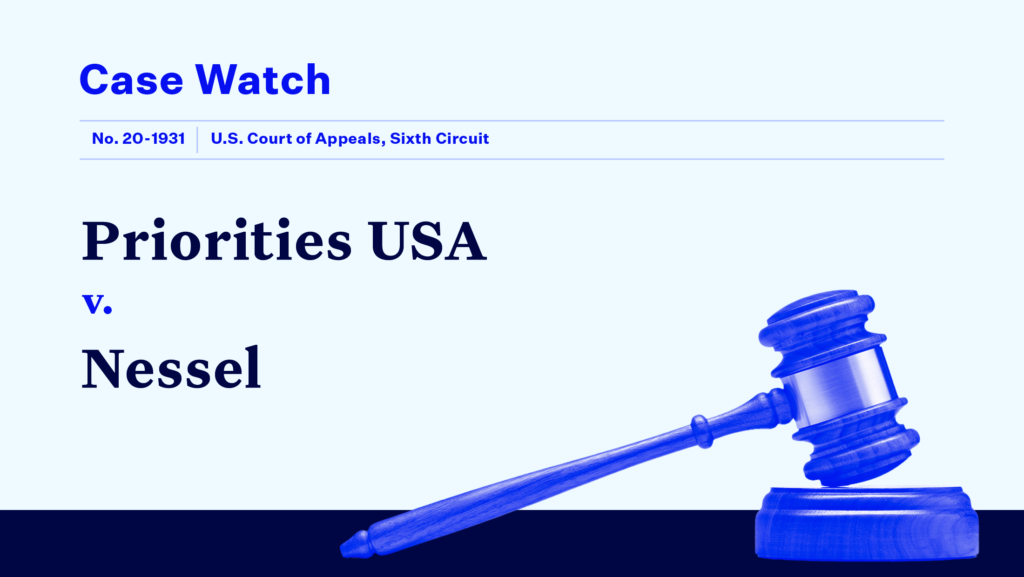Ubering to the Polls: Michigan’s Ban on Voter Transportation

Voter suppression laws are not unique to 2021. For decades, Republican state legislatures have written, passed and defended disenfranchising laws for every step of the voting process. In Michigan, a challenge to the state’s voter transportation ban — originally brought in 2019 — is still being litigated.
How did we get here?
A full year ahead of the 2020 election, the progressive advocacy organization Priorities USA sued Michigan over two specific election laws: the voter transportation ban and the absentee ballot organizing ban. Both of these restrictions create unnecessary hurdles for eligible voters to cast their ballots, and particularly affect people without access to private transportation. In January 2020, student group Rise, Inc. and labor group A. Philip Randolph Institute joined the lawsuit.
Michigan’s voter transportation ban prohibits anyone from hiring transportation for bringing voters to the polls unless the voters are physically unable to walk. The possible penalty for helping someone get a ride to the polls is a $500 fine and up to 90 days in prison. This ban severely hinders get-out-the-vote campaigns that often include initiatives that focus on giving rides to disabled voters, Black church communities and other groups who do not have easy access to transportation. This ban is unique to Michigan. For example, in 2018 Uber and Lyft provided promotions to help voters in every other state to get to the polls, but Michiganders could not take part.
The absentee ballot organizing ban makes it a crime for unregistered people to help a voter return their absentee ballot application. This is no small ban: experts in the case found that there are about 800,000 unregistered but eligible people who would be penalized for helping a neighbor or community member return an absentee ballot application.
Republicans didn’t hide their support of these disenfranchising laws. One month after the amended complaint was filed, the Michigan Republican Party and the Republican National Committee (RNC) filed a motion to intervene in the case. Despite their intervention, the district court granted part of the motion for preliminary injunction in September, temporarily halting the voter transportation ban. But Republicans immediately fought back, filing a notice of appeal and an emergency motion for stay (meaning pause), which the 6th U.S. Circuit Court of Appeals granted. This unfortunately meant that both bans were in place during the 2020 election. But the fight continues.
What’s at stake?
The appeal will now be litigated in front of the 6th Circuit, focusing on the temporary halt to the voter transportation ban and, specifically, whether the ban is likely preempted by the Federal Election Campaign Act. The Federal Election Campaign Act allows organizations to spend money to provide transportation to the polls. The plaintiffs also argued that the Republican intervenors do not have standing to bring the appeal in the first place. And even if the 6th Circuit overturns the district court’s order temporarily halting the voter transportation ban, the fight to permanently halt the ban will continue in district court.
The voter transportation ban and absentee ballot organizing ban do not make Michigan elections more secure, but instead disenfranchise thousands of eligible voters who rely on get-out-the-vote efforts. From souls-to-the-polls campaigns to union-led rides to the polls, these voting restrictions uniquely burden the fundamental right to vote.